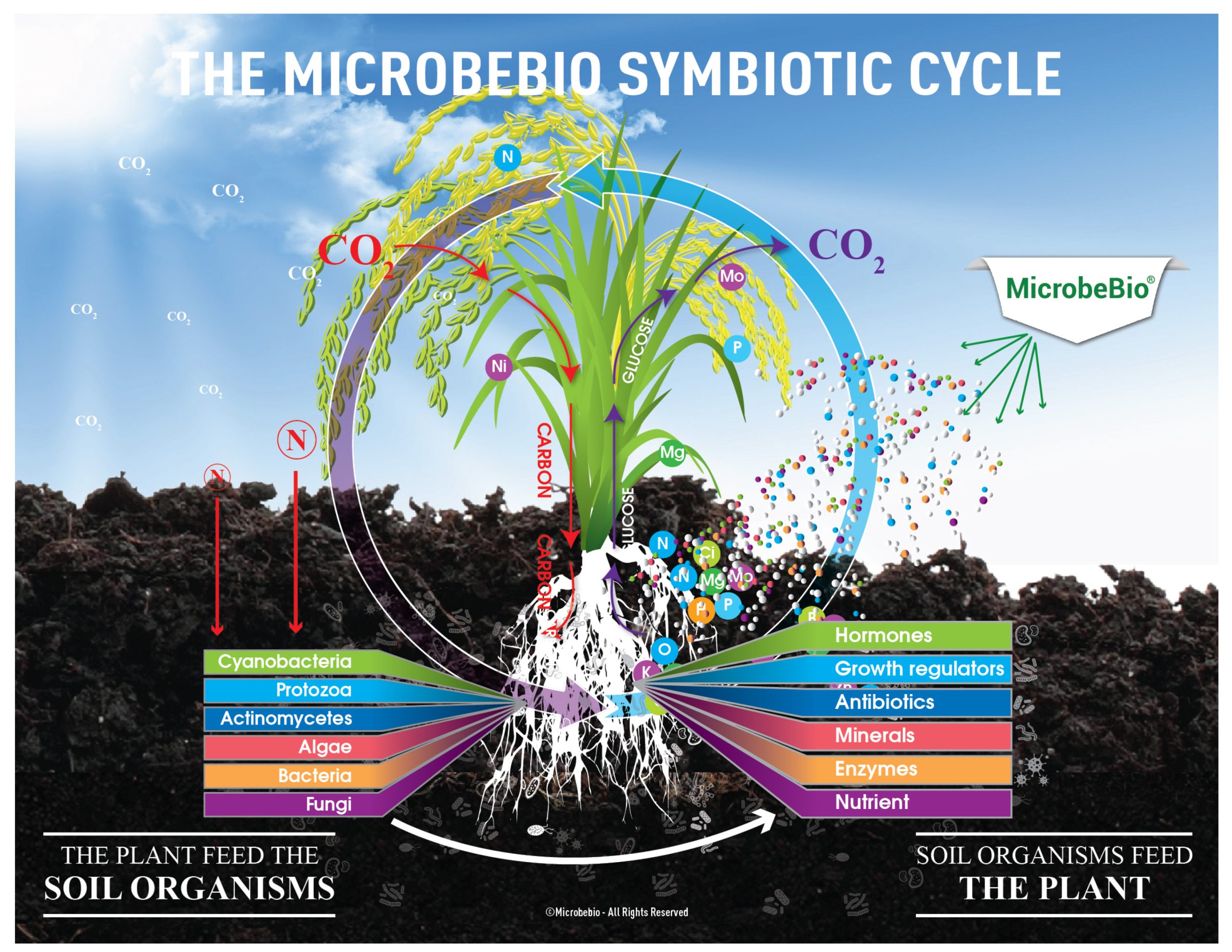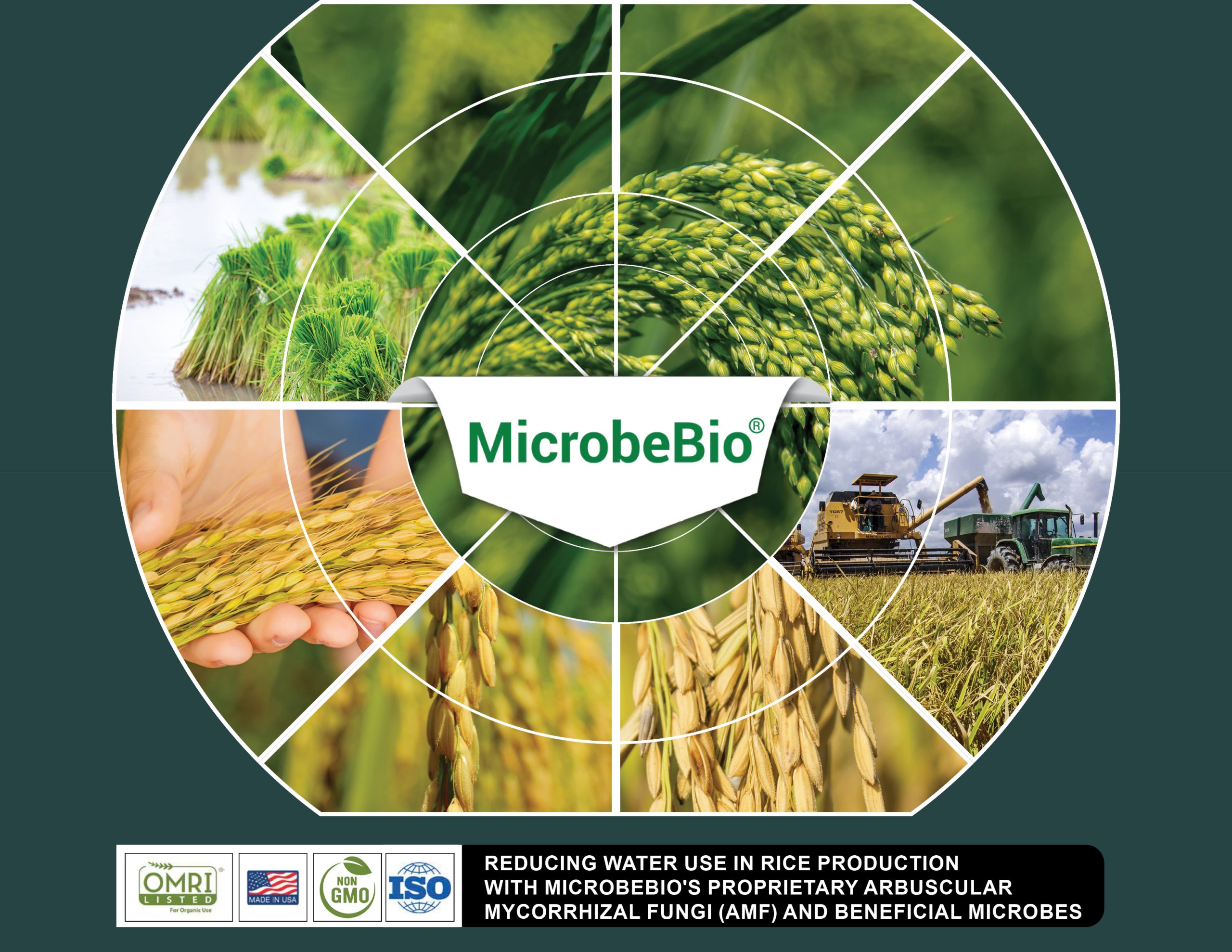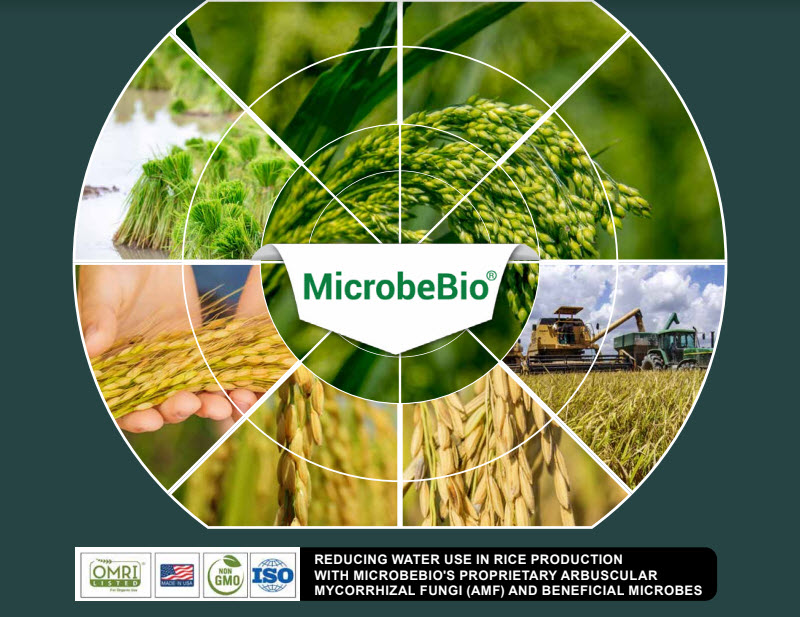Reducing Water Use in Rice Production with Microbebio's Proprietary Arbuscular Mycorrhizal Fungi (AMF) and Beneficial Microbes

In the face of water scarcity and climate change, sustainable agriculture practices are more critical than ever. **Microbebio’s proprietary Arbuscular Mycorrhizal Fungi (AMF) and beneficial microbes** offer a revolutionary approach to reducing water use in rice production. By enhancing water uptake, nutrient acquisition, and resilience to stress, these natural allies can significantly improve the efficiency and sustainability of rice farming.

Reducing Water Use in Rice Production with Microbebio's Proprietary Arbuscular Mycorrhizal Fungi (AMF) and Beneficial Microbes
Arbuscular Mycorrhizal Fungi Enhance Rice Drought Tolerance
Microbebio’s proprietary AMF can significantly improve the drought tolerance of rice plants through several mechanisms:
Improved Water Uptake: AMF colonization enhances the rice plant’s root system, allowing it to access water from a larger soil volume. This improves the plant’s water status under drought conditions.
Enhanced Nutrient Acquisition: AMF increase the uptake of essential nutrients like phosphorus (P), nitrogen (N), and potassium (K) by rice plants, even under drought stress. Better nutrient status helps maintain plant growth and yield.
Regulation of Plant Hormones: AMF colonization modulates the levels of plant hormones like abscisic acid (ABA) and indole acetic acid (IAA), which play crucial roles in the plant’s drought response.
Antioxidant Defense: AMF help rice plants maintain higher activities of antioxidant enzymes like superoxide dismutase, catalase, and peroxidase under drought, reducing oxidative damage.
Synergistic Effects of AMF and Phosphorus
Combining Microbebio’s proprietary AMF inoculation with phosphorus (P) application can further enhance the drought tolerance of rice:
Improved Phosphorus Utilization: AMF improve the plant’s ability to acquire and utilize soil P, which is essential for growth and stress resistance.
Enhanced Growth and Yield: P application along with AMF inoculation has been shown to increase leaf greenness, photosynthetic rate, and grain yield of rice under water-limited conditions.
Synergistic Benefits: The synergistic effects of AMF and P help maintain higher water status, proline accumulation, and nutrient uptake in rice plants under drought stress.
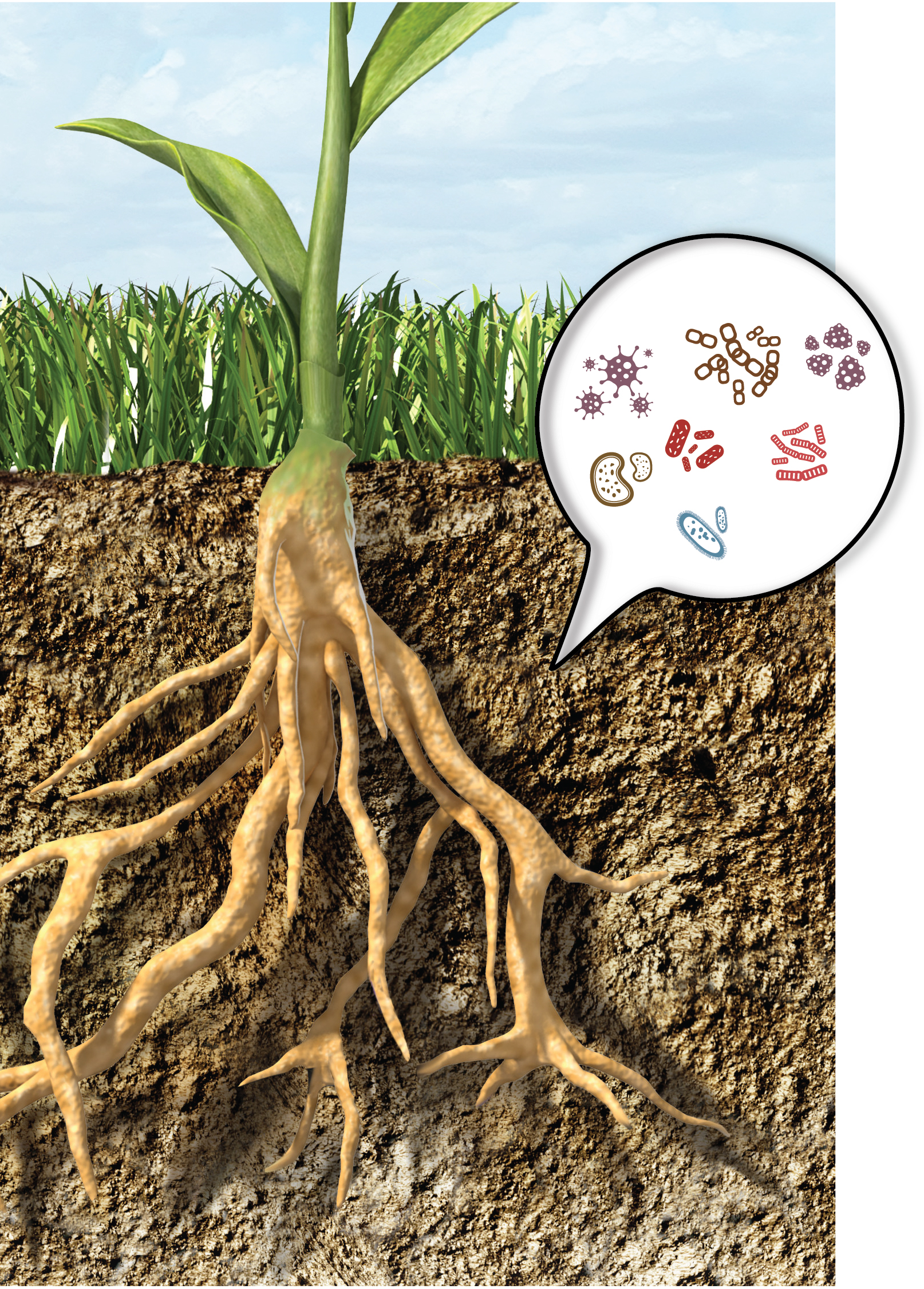

Reducing Water Use with
Alternate Wetting and Drying
Alternate wetting and drying (AWD) irrigation is an effective water-saving technique for rice production:
Water Savings: AWD reduces water input by 25-38% compared to continuous flooding, without significantly impacting yields.
AMF Colonization: However, prolonged flooding can negatively impact AMF colonization and their beneficial effects on the rice crop. Careful management of the AWD regime is necessary to maintain optimal AMF activity and the associated drought tolerance benefits.
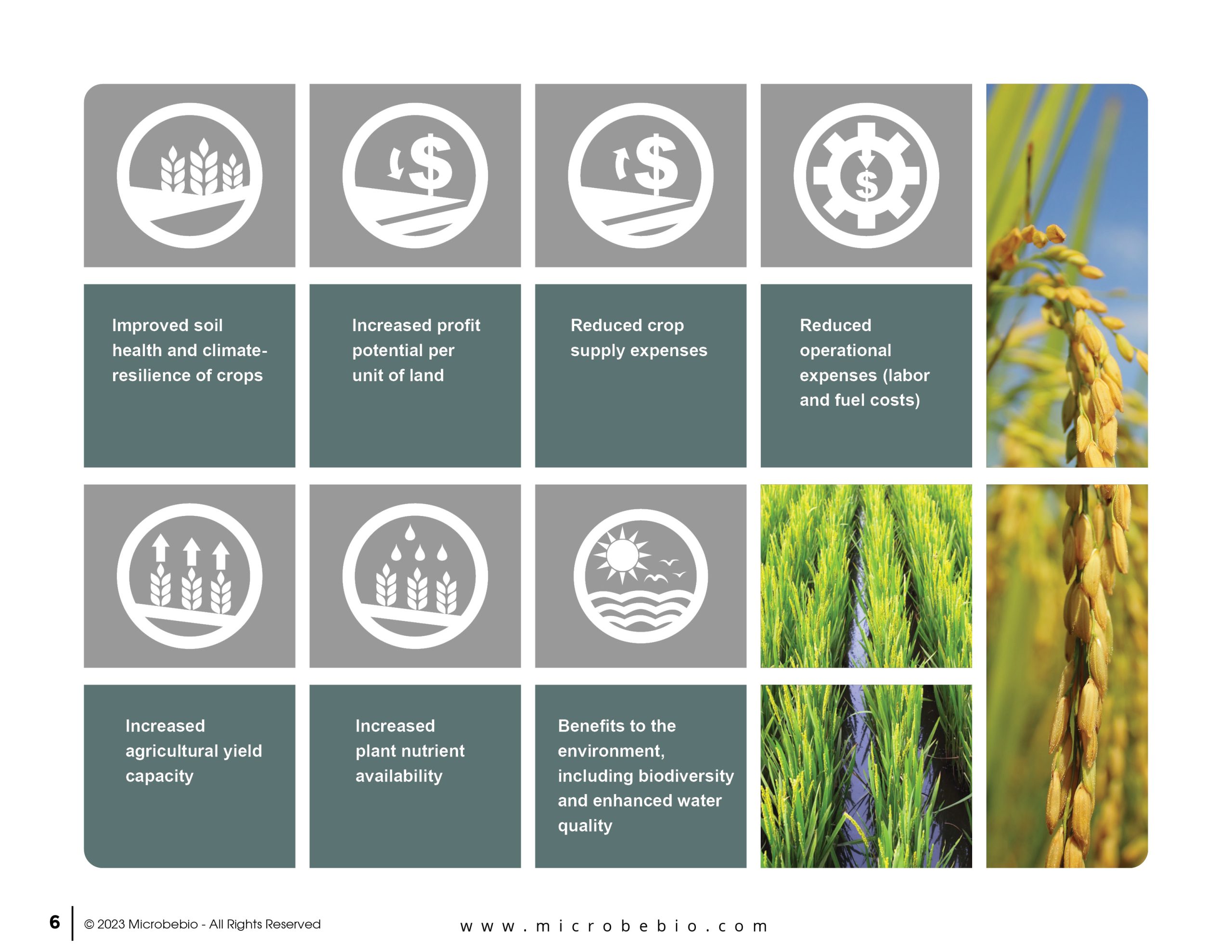
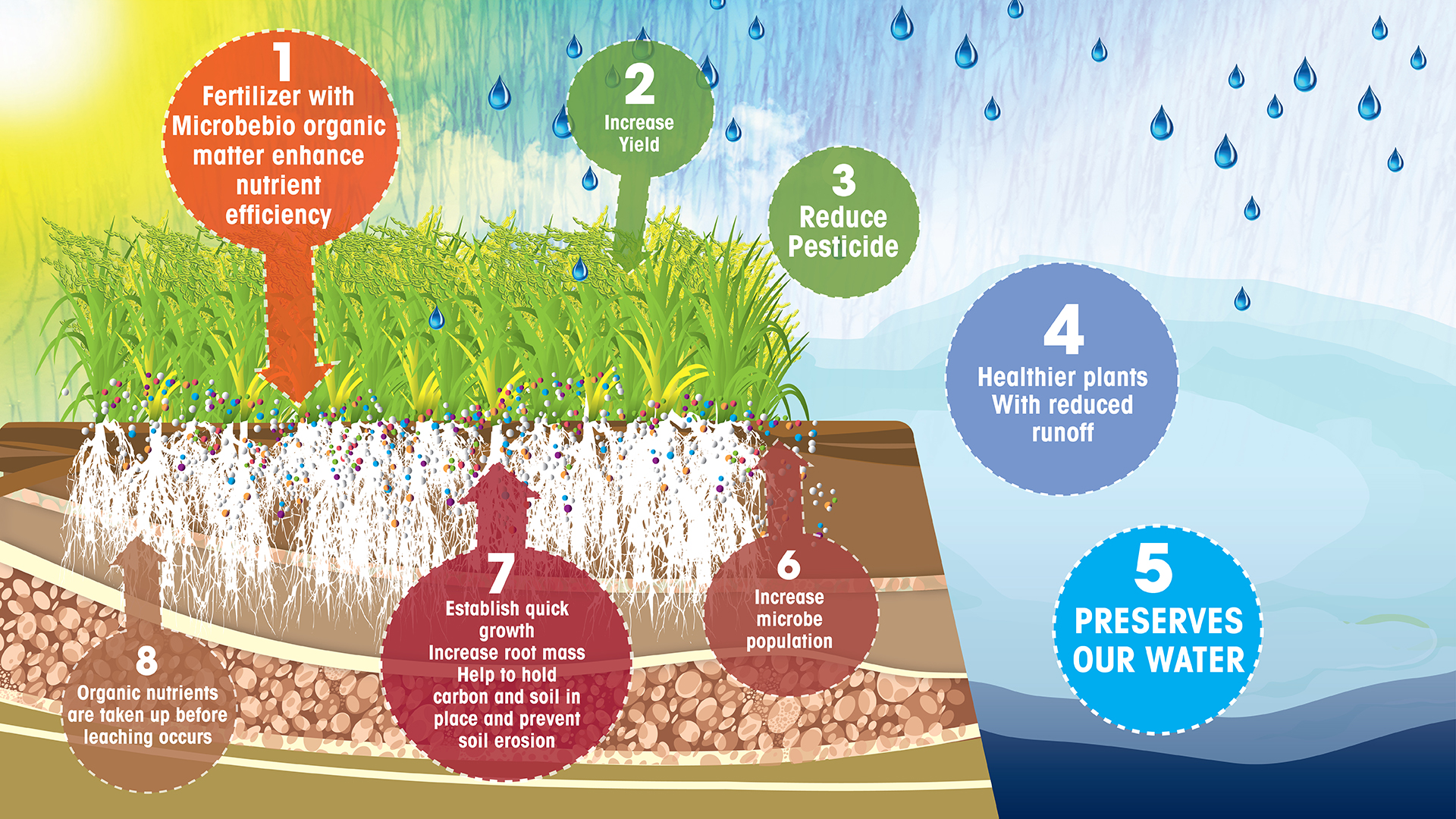
Role of Proline in Rice Drought Response
Proline is an important osmoprotectant that accumulates in rice plants under water stress:
Osmoprotection: Drought increases proline levels in rice leaves, helping maintain cell turgor and membrane stability.
Antioxidant Defense: Exogenous application of proline can further enhance the plant’s antioxidant defense and photosynthetic efficiency under drought.
AMF and Proline: AMF colonization has also been shown to increase proline accumulation in rice, contributing to improved drought tolerance.

Role of Proline in Rice Drought Response
By leveraging the symbiotic relationship between rice and **Microbebio’s proprietary AMF and beneficial microbes**, along with strategic phosphorus fertilization, farmers can reduce water use and maintain yields in rice production. Integrating practices like alternate wetting and drying (AWD) irrigation further enhances water efficiency. This multi-faceted approach not only conserves water but also enhances crop productivity and helps adapt rice cultivation to the challenges of water scarcity and climate change.
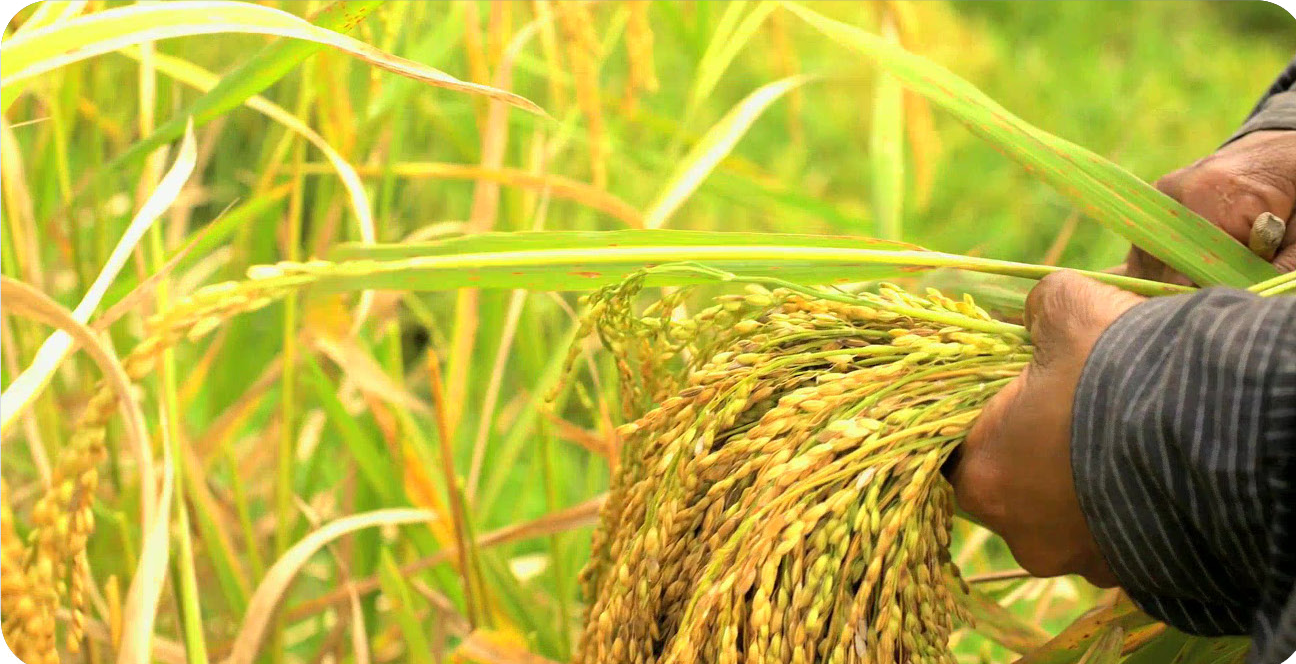
Embrace the future of
sustainable rice farming
with Microbebio's
proprietary AMF and
beneficial microbes.
Transform your fields and
secure a more productive
and environmentally
friendly agricultural
practice today!
